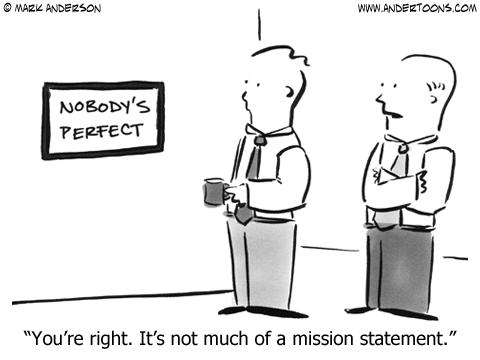Creating a Company Culture that Thrills Customers at WP Engine

I once did consulting at a company who had a petri dish in the lobby. The founders had spit into it when they moved into their new office, something grew in it (though not as large, fuzzy, and disgusting as you’d like it to be), and they put a sign over it saying “corporate culture.” In retrospect when I think about how company cultures form, the petri dish is actually a great metaphor.
“Company culture” is one of those touchy-feely non-engineering concepts which at previous companies I used to ignore. I thought it was an excuse for the HR department to talk about something when they weren’t explaining how the medical insurance worked.
But over the past 16 years of working at and then founding startups, I’ve learned that this attitude is exactly wrong. Neglecting culture is easy mistake to make for a “green-blooded Vulcan” like myself, but a mistake nonetheless. At WP Engine, we’ve done a lot of intentional work to create a certain type of culture because just like building great products and providing great support, having a good culture is a key tenant of building a company.
The importance of culture is summed up in a phrase you can find everywhere and therefore is hard to attribute: Every company has a culture. The only question is whether or not you decide what it is.
For me, having built two companies before WP Engine where I didn’t “decide what it is,” this hits home. It was absolutely true that those company cultures just developed “out of thin air,” established almost de facto as we added employees. And once it set in stone, around the time a company rounds about a dozen employees, there’s no turning the ship.
But why exactly should we WP Engineers care? And why should you care, as a customer?
If culture is going to develop into something no matter what we do — why should we even try to be intentional about it?
For WP Engine, I’ll provide the reason first (and then I’ll justify why it’s true).
Our number one priority is thrilling customers, and the only way we’ll systematically do that is by hiring, managing, and when necessary, even firing against a set of cultural norms.
First, why is “thrilling customers” our number one priority? Shouldn’t it be “awesome servers,” or “uptime,” or “security,” or something? Technically, we’re a tech startup company, so shouldn’t we be 100% focused on our features or technology…?
Sure, of course those things are important, and we have entire teams of people, internal processes, and metrics/monitoring around our servers and our security (and a number of other mission critical elements), because they’re important to raising the bar for managed WordPress hosting. But those aren’t number one, because if we thrill customers, all of the following happens:
- (Support) Thrilled customers are more happy with support, which means they’re easier and more pleasant to support, which means we do a better job supporting them, and they’ll be happier…As a result, we and have better morale and build a virtuous cycle with our customers.
- (Financial: Growth) Thrilled customers tell other people to sign up with us, and therefore directly results in inexpensive-to-acquire new revenue.
- (Financial: Profits) Thrilled customers can be very gracious to us when we make a mistake, and so long as we own those mistakes, they are less likely to cancel over smaller issues, which means higher retention, which means more long-term profit without raising prices or “upselling” or similar techniques. It also means we’re able to provide a solution that makes people happy for as long as possible.
- (Problem Management) Thrilled customers are more forgiving and understanding when we go through a problem, like having some downtime or discovering a security issue. Although it’s obviously better for the company to not have problems like that in the first place, we can earn leniency if customers are always treated with respect, honesty, and the time and attention they need to be comfortable.
I could have also written, “because it’s the right thing to do,” or “because that’s what we want to do,” because those are very true as well. But on a certain level, I think it’s even more interesting to leave out the emotional parts of it, not because those are invalid or unimportant, but because it’s interesting to see that even with a “cold,” rational, business, economic viewpoint, focusing on culture is still the correct business decision.
OK fine, “thrilling customers” is the goal because it’s the single biggest factor in achieving both financial and operational goals as well, but why do we then say the “only” way to achieve this is through corporate culture?
Doesn’t seem like a connection.
The reason is this: You can train someone how DNS works, but you can’t train someone to naturally have empathy for a customer. You can train someone with specific ways to interact with an irate customer, but you can’t train someone to genuinely care about helping that irate customer. At some point along the way, we’ll make a mistake, and it’s our responsibility to handle it with humility.
You can train someone on the 40 pre-sales FAQs, but you can’t train someone to care about the customer’s success so much that a so-called salesperson is not just willing but happy and fulfilled to say “I think actually you’d be better off with another host,” at the cost of closing that sale.
You can train skills, but you can’t train attitude, and the attitude is going to make the real difference in that situation.
Driving this completely home, looping in the points above, we won’t be successful if we say, “We want revenues to go up, therefore we’ll make customers happy.” Rather, we’ll be successful if we say, “We want customers to be successful, and we trust that revenue will go up as a side-effect.”
If you can’t train attitude, then you have to hire for attitude. That’s fine, but then you have to know “what attitudes are we looking for, specifically?” And then you have to write that down, codify it, so that you can hire against it.
And after the hiring, you have to be able to know whether you’ve made a mistake. And you have to be able to use it in a performance review, or in determining whether we like the way we handled a particular ticket, or whether we’re happy with how a sale is going, or what kinds of internal and external tools and features we want to build, or what metrics we want to track and improve on, and so forth.
Let’s take support metrics as a concrete example. There are lots of metrics we track in support — time to first response, time to close the ticket, backlog lengths, variation by day or customer or ticket type, and the post-issue-closed survey asking whether the customer felt they were taken care of.
Because “thrilling the customer” is the main goal, it’s clear which of those metrics is our number one priority: the “were you thrilled?” survey question. If we keep that high, then any result in any other metric is in the grand sense unimportant.
Having said that, of course we want to answer tickets quickly too! As of this writing, our 7-day average response-time of a ticket (by a human!) is 17 minutes. That’s awesome. But if we achieved that awesome response time at the expense of customer happiness, we would know immediately that’s the wrong direction, because we know what’s most important.
And whereas “quick response time” can be managed by things like better ticket-prioritization tools (we built our own), and keeping ahead of hiring (we have more support staff per 1000 customers than anyone else), and mentoring and training on specific tactics for time-management, having someone actually care about the customer, listen to the customer, empathize with the customer, and go the extra mile for a customer — those are things which we can try to legislate, but it really needs to come from within, and that’s why it’s part of culture more than anything else.
Altogether, these are our values. We even have an internal culture document we use to interview new Support Engineers, Devs, Sales, Managers, and everyone else. We seek specific qualities like:
- Take initiative and displays tenacity to complete tickets and projects without being micro-managed.
- Personally happy when the customer is happy. Seeks approval for work well-done.
- Patience and grace when explaining technical details on a ticket. Seek positive opportunities to share knowledge.
- Empathy for customer’s troubles.
- Happy disposition, similar to Southwest Airlines.
You’ll see these qualities being actively measured every time you’re asked if the support on any given ticket “thrilled” you or not. And you should also see each of these qualities borne out in your communication with everyone in our company, especially on support tickets and emails, but we also make sure our conversations on social media reflect those same cultural values.
Tactics, metrics, and techniques help us day-to-day to ensure a customer experience that does indeed thrill you. But it’s an intentional, maniacal focus on culture that will actually enable us to achieve our goals, and continue doing so as we continue to grow the WP Engine team.
We’re not leaving our company culture to chance.











This is a great piece, and I enjoyed reading it. It’s very obvious that what has been said here is true, every time I deal with you guys. Keep it up!
happy customer wants to share your article with his networks. your blog needs sharing buttons? or am I missing something?
Jason,
A great article. Wish I had read it last night when I spoke at Tech Ranch. You hit it right on the nail.
Congrats….it is time for coffee.
Thank you jason. Indeed a nice writeup.
This leads me to request a follow up article on exactly how you are building culture at WP Engine. Those small and big, tips and tricks and little and big actions. Can you please write up a case study/guide on this?
Great question! Yes that’s a good topic which I’ll endeavor to opine on.
Jason, I am delighted to have discovered this post while considering the question and importance of culture. It seems to be the thing right in front of entrepreneurs that they are blind to. I was recently asked to answer the question, “How does a service based business scale and grow?” I tend to believe the statement that you hire employees not for their time, but for their results, and if 21st century companies are going to scale in the age of internet transparency, culture is key.
Creating companies that people love, or as you say, thrilling customers, is the job of leadership who understand they are like parents who set the tone and rules of the house.
Jason,
Great topic. Very cool to hear an entrepreneur talking/writing about culture. For sure, in order for innovation to happen you need great minds and personalities who thrive on doing something better than it’s ever been done before. And who have a lot of tenacity. But once you’ve caught hold and, like you said, grow beyond the original 10-20 employees, then what happens?
Most bright, creative people don’t want to be “managed” by some antiquated, out-of-date, repressive ideas about business culture. Especially in Austin.
And I think there’s more that’s needed here than social networking – I think people want to be led by leaders who are inspiring, not only based on their technical and business expertise but also because of their interpersonal qualities. Robert Hogan (leadership author) refers to piles and piles of data that demonstrate that, universally, people want leaders who are competent AND whom they can trust. And how these qualities cascade throughout an organization.
This jives with what you say about culture that thrills the customer. If WP Engine folks go the extra mile, take initiative, have empathy for their customer’s troubles, are happy when the customer are happy ….then your customers can trust your employees are committed to their well-being.
So after WP Engine has selected the right people, how do you continue to grow them and nourish their need for development and well-being? Ah, now we’re entering into my territory…..Paula Zamarra, M.A.
Excellent points here about integrating culture with customer strategy. Enjoyed reading this and glad I came across it. Thanks for sharing.